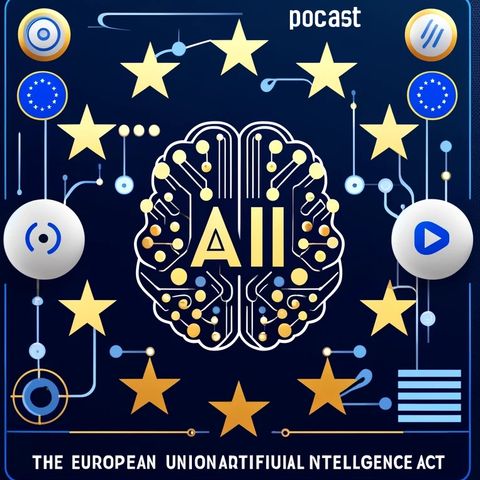EU lawmakers intensify fight against AI-fueled disinformation

Regístrate gratis
Escucha este episodio y muchos más. ¡Disfruta de los mejores podcasts en Spreaker!
Descarga y escucha en cualquier lugar
Descarga tus episodios favoritos y disfrútalos, ¡dondequiera que estés! Regístrate o inicia sesión ahora para acceder a la escucha sin conexión.
EU lawmakers intensify fight against AI-fueled disinformation
Esta transcripción es generada automáticamente. Ten en cuenta que no se garantiza una precisión absoluta.
Descripción
The European Union is setting a global benchmark with its new Artificial Intelligence Act, a comprehensive legislative framework aimed at regulating the deployment and development of artificial intelligence. The Act,...
mostra másThe Artificial Intelligence Act categorizes AI systems according to the risk they pose to safety and fundamental rights, ranging from minimal risk to unacceptable risk. For example, AI systems intended to manipulate human behavior to circumvent users' free will, or systems that allow social scoring by governments, fall under the banned category due to their high-risk nature. Conversely, AI applications such as spam filters or AI-enabled video games generally represent minimal risk and thus enjoy more regulatory freedom.
One of the Act's key components is its strict requirements for high-risk AI systems. These systems, which include AI used in critical infrastructures, employment, education, law enforcement, and migration, must undergo rigorous testing and compliance procedures before being deployed. This includes ensuring data used by AI systems is unbiased and meets high-quality standards to prevent instances of discrimination. Additionally, these systems must exhibit a high level of transparency, with clear information provided to users about how, why, and by whom the AI is being used.
The European Union's approach with the Artificial Intelligence Safety Act involves heavy penalties for non-compliance. Companies found violating the provisions of the AI Act could face fines up to 6% of their annual global turnover, underlining the severity with which the EU is treating AI governance. This structured punitive measure aims to ensure that companies prioritize compliance and take their obligations under the Act seriously.
Furthermore, the Artificial Intelligence Safety Act extends its reach beyond the borders of the European Union. Non-EU companies that design or sell AI products in the EU market will also need to abide by these stringent regulations. This aspect of the legislation underscores the EU’s commitment to setting standards that could potentially influence global norms and practices in AI.
Implementation of the Artificial Intelligence Act involves a coordinated effort across member states, with national supervisory authorities tasked with overseeing the enforcement of the rules. This decentralized enforcement scheme is meant to allow flexibility and adaptation to the local contexts of AI deployment, while still maintaining consistent regulatory standards across the European Union.
As the implementation phase ramps up, the global tech industry and stakeholders in the AI field are closely monitoring the rollout of the EU’s Artificial Intelligence Act. The Act not only represents a significant step towards ethical AI but also potentially a new chapter in how technology is governed worldwide, emphasizing the importance of human oversight in the digital age.
Información
| Autor | QP-3 |
| Organización | William Corbin |
| Página web | - |
| Etiquetas |
Copyright 2024 - Spreaker Inc. an iHeartMedia Company
